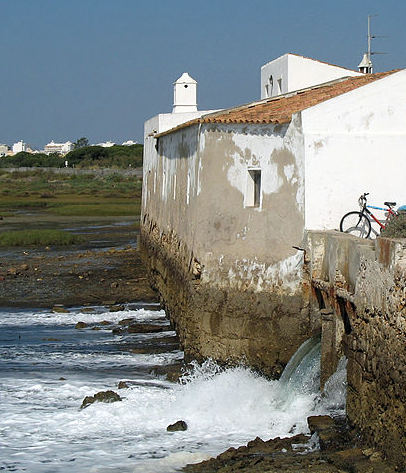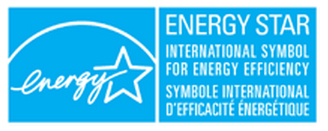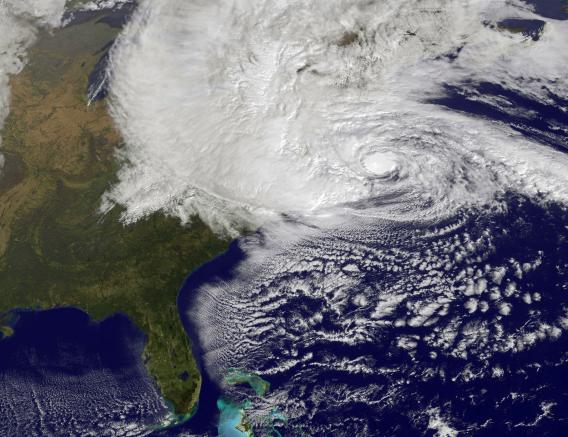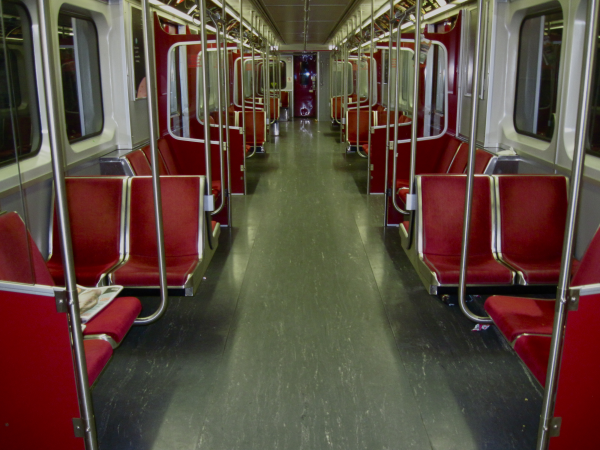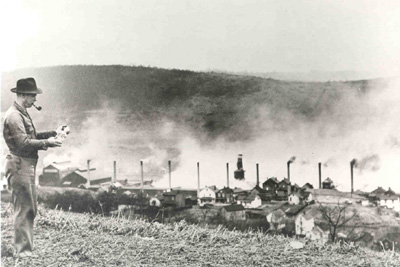Building energy policy is growing across the country. States and municipalities are passing legislation requiring government, commercial and multifamily buildings to disclose, rate and benchmark energy and water usage. For each program in its respective region, there are unique building size and type requirements as well as different disclosure procedures. This guide will provide you with a rundown of each current policy and take a look at which jurisdictions will be passing new laws before long.
Utility Tracking and Benchmarking Blog | WegoBlog
Nate Brevard
Recent Posts
Tags: News and Policy, Green Property Management, Benchmark, energy star, Energy Disclosure
Tidal Power has been in the news this month, but for at least 1500 years we have been harnessing the power of the ocean’s tides to improve our lives. Since the Middle Ages, tide mills have been used to grind grain, and beginning in 1966, we have been using tidal generators to generate renewable electricity.
Active old-style tide mill, Portugal
Tags: Renewables, Sustainability
EPA and NRCan releasing Portfolio Manager for Canada in June
Posted by Nate Brevard on Thu, Dec 06, 2012
The EPA’s building benchmarking tool, Portfolio Manager, will make a fully featured expansion into Canada this spring.
Last year, the Environmental Protection Agency (EPA) and Natural Resources Canada (NRCan) committed to expanding the EPA’s Portfolio Manager software to Canada this June. As it stands now, any building in the world can use the tool, but it will ultimately be benchmarked against buildings in the USA. With this development, Canadian buildings will now be compared against actual Canadian building stock and the analysis will incorporate Canadian source energy and greenhouse gas figures.
Hurricane Sandy: The Effect of Severe Weather on Wind and Solar Power
Posted by Nate Brevard on Thu, Nov 15, 2012
Wind and solar energy systems are constantly in the open, exposed year-round to
whatever weather or disaster events come their way. Therefore, wind turbines and solar panels are built to withstand the elements, but how do they fare when encountering an extreme event, like the recent destruction Hurricane Sandy produced in the eastern Unites States?
Tags: save energy, solar systems, energy star
At both the beginning and end of their life cycles, modern electronics are a risk to the environment. Both the iPhone 5 and the Samsung Galaxy S3, today's top mobile phones, are excellent examples of this. The process of putting these devices together starts, of course, with raw materials. The expensive, hard-to-find substances that polish the glass, make the screen's colors pop, and ensure the vibration buzzes are called rare earth metals--and extracting them from the earth can be messy. The refuse, or tailings, left over from mining are mildly radioactive and toxic acids are required as part of the refining process. When disposed of irresponsibly, the waste products from these mines have harmed nearby communities and poisoned water supplies.
Tags: Sustainability, Recycling, Green living
Green Leases: Solving the Owner-Tenant Split Incentive Issue
Posted by Nate Brevard on Thu, Oct 04, 2012
In order for a building to be truly energy efficient, the interests of both the owner and tenants must be aligned in favor of sustainability. Unfortunately, traditional lease arrangements often do the opposite, and skew the interests of both parties. For instance, if a lease includes fixed utility costs, the tenant has no financial incentive to use sustainable practices; if the lease dictates that the tenant pays for utilities, the owner has less incentive to pay for energy efficiency improvements in tenant spaces because he or she will not be able to take advantage of the subsequent financial benefits.
Tags: News and Policy, Energy efficiency
In the 1970s, public transportation was publicized as a source of efficiency during a time of substantial energy shortages. With cars achieving an average of 13 miles per gallon at the time, this was an accurate assessment—but things have changed.
When you’re on your way to work and find yourself on a packed city bus standing shoulder to shoulder with your fellow commuters, hoping in vain to get lucky enough to squeeze into one of those luxurious hard plastic seats--its hard to imagine that public transportation isn’t energy efficient.
In 1948, the people of Donora, Pennsylvania experienced the worst pollution disaster in the history of the United States.
Many credit the literary works of Henry David Thoreau or Teddy Roosevelt’s patronage of national parks as the roots of the green movement in the US. However, after two world wars with the Great Depression thrown between them, environmentalism and sustainability were far from people’s minds. The tragedy and loss of life of the Donora Smog tragedy and the shock of awareness it created greatly contributed to the legislative drive that created the Clean Air Act.
LL84 2012: NYC Benchmarking Updates for Your 2011-year Submission
Posted by Nate Brevard on Thu, Apr 12, 2012
Compliance submissions through the EPA’s Portfolio Manager for New York City’s Local Law 84 (building energy benchmarking) are due by May 1st, 2012!
Below is a rundown of what’s new for benchmarking your building’s 2011-year energy use.
Tags: News and Policy, Energy efficiency


